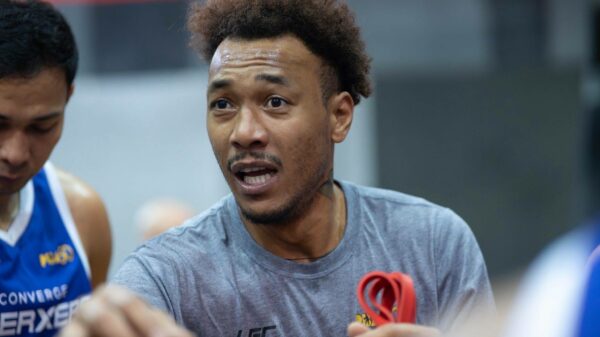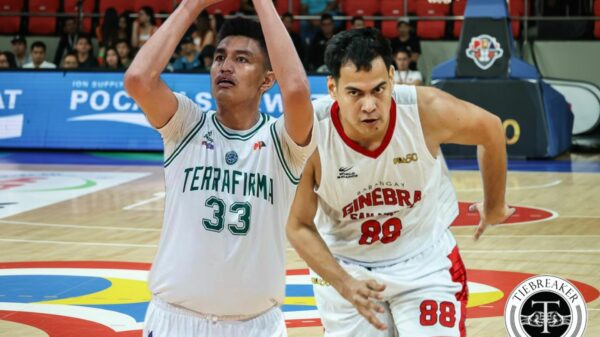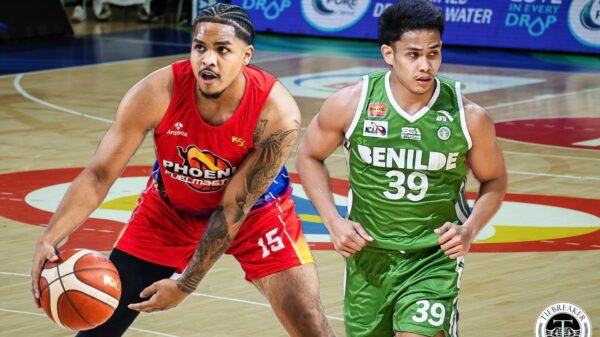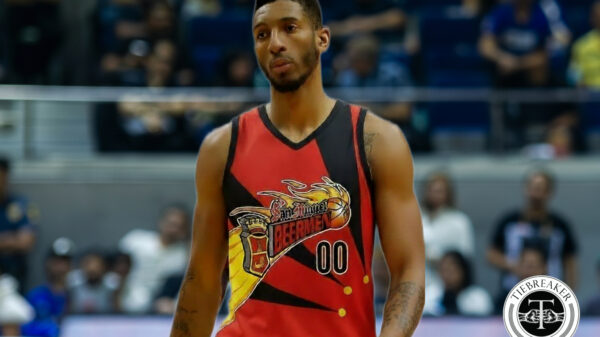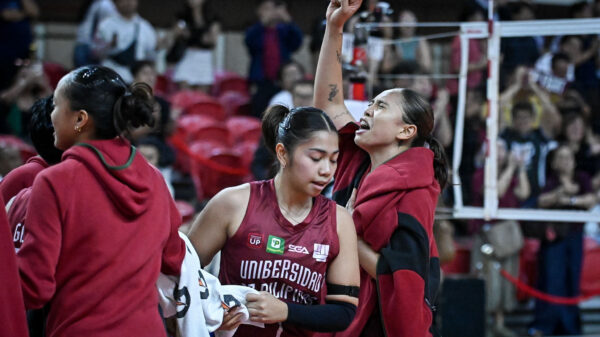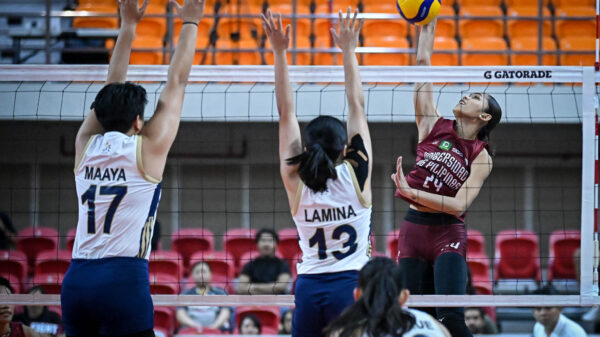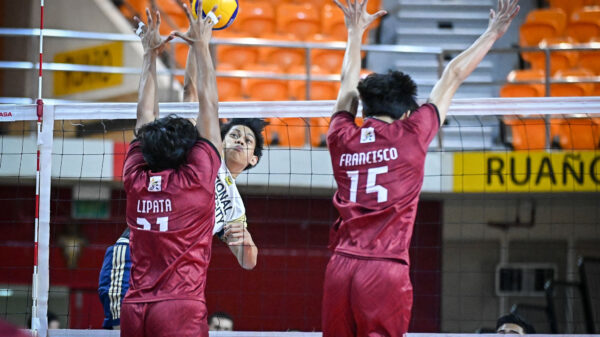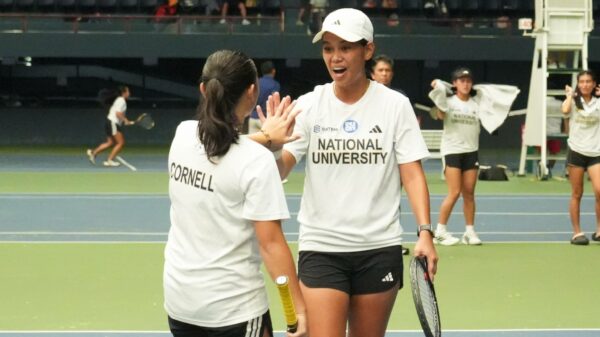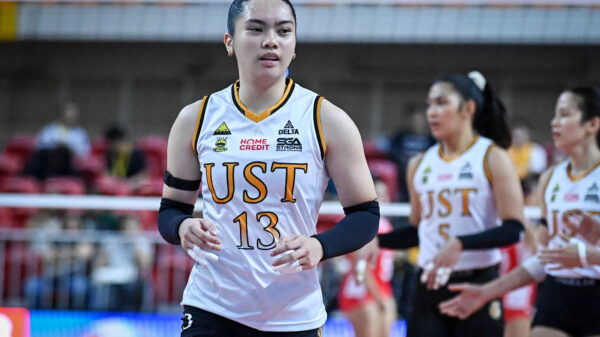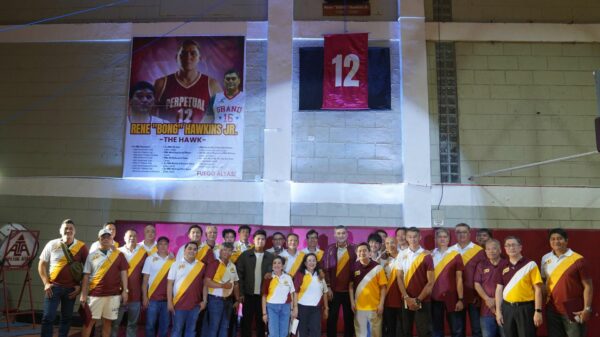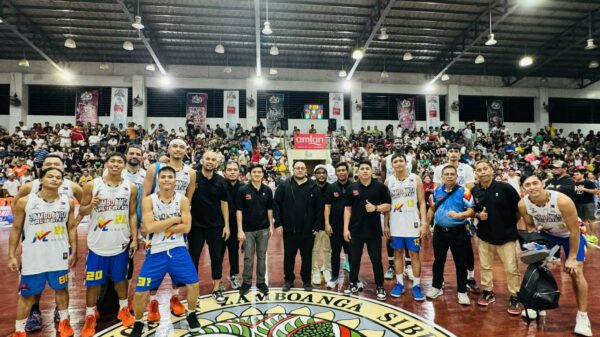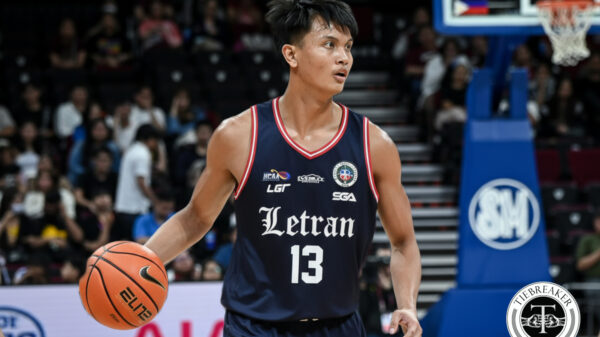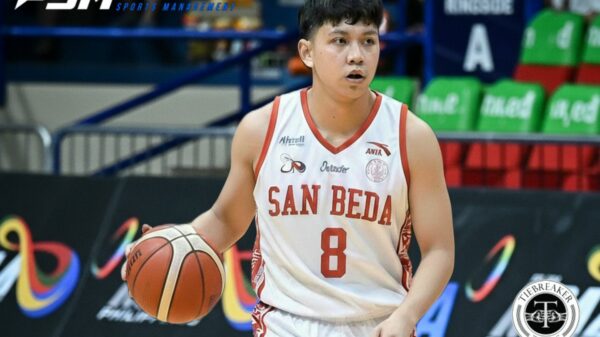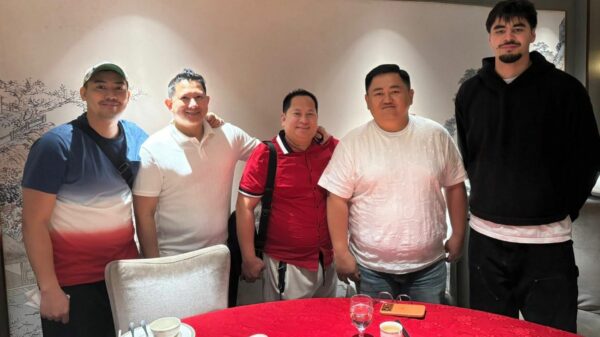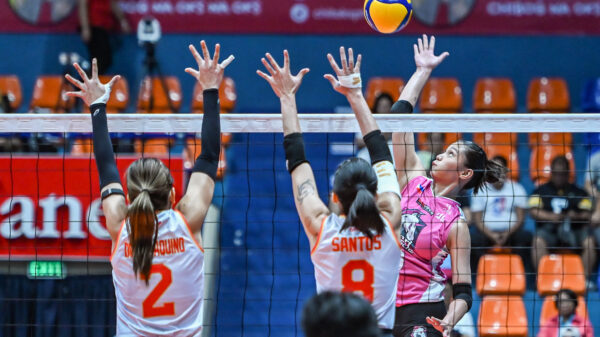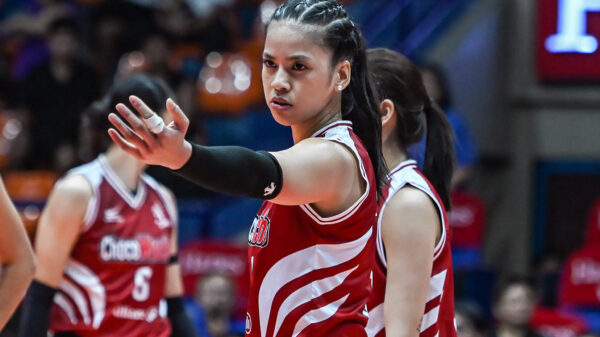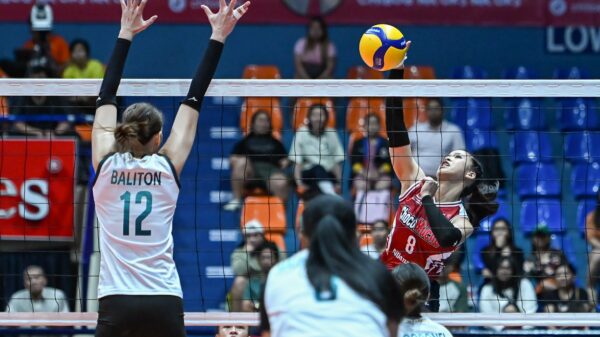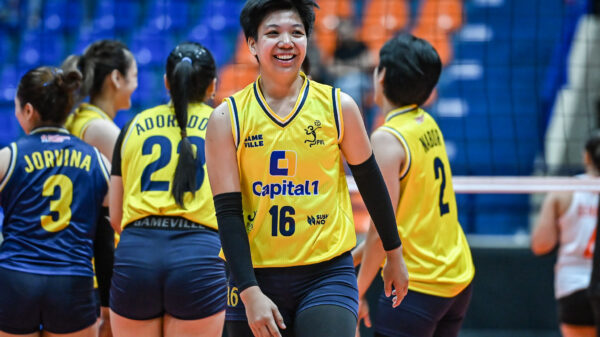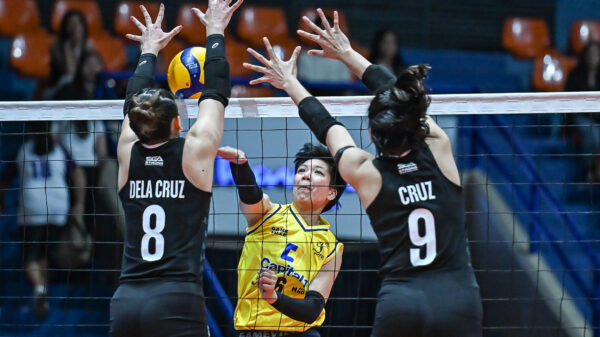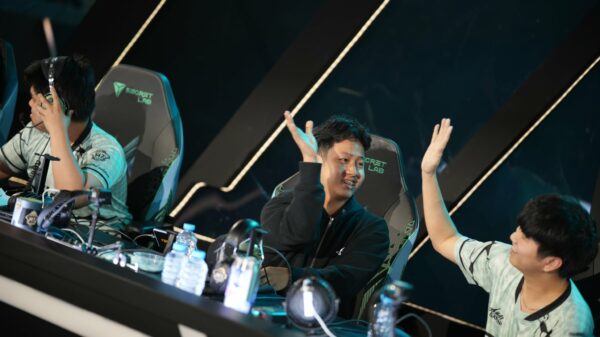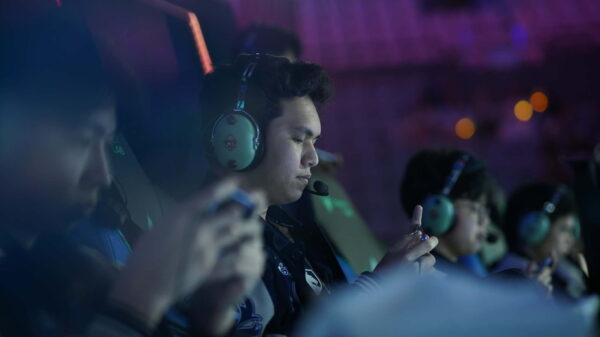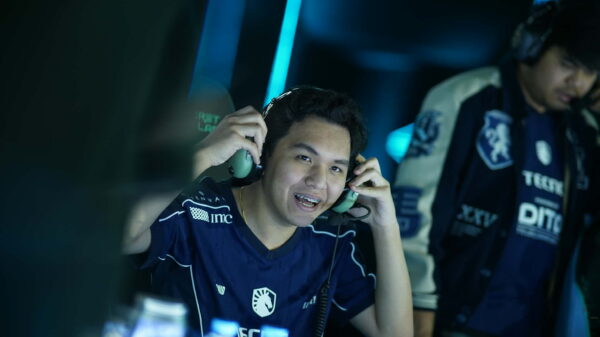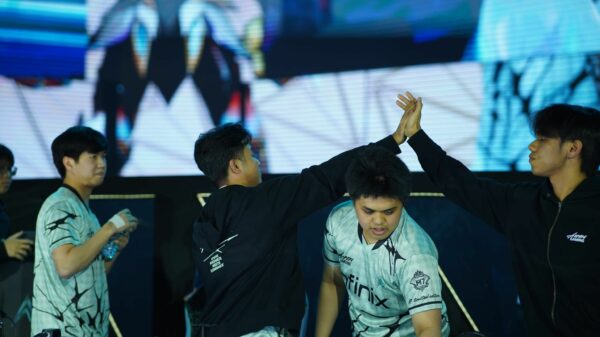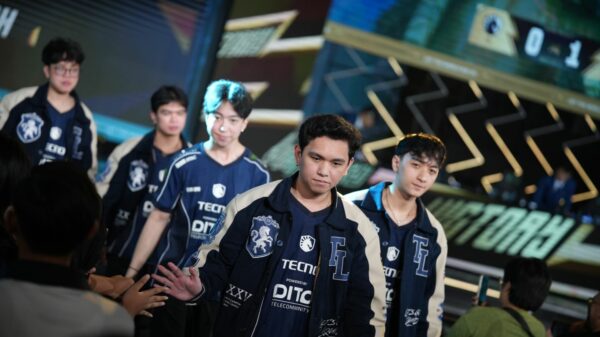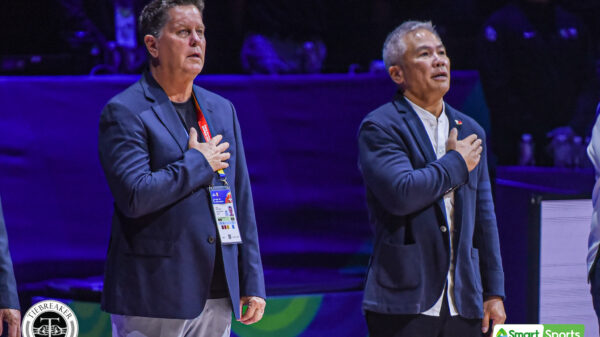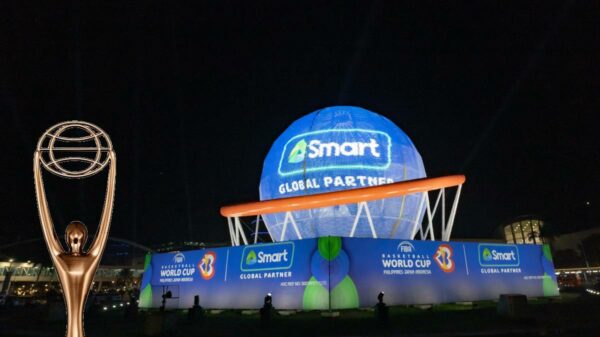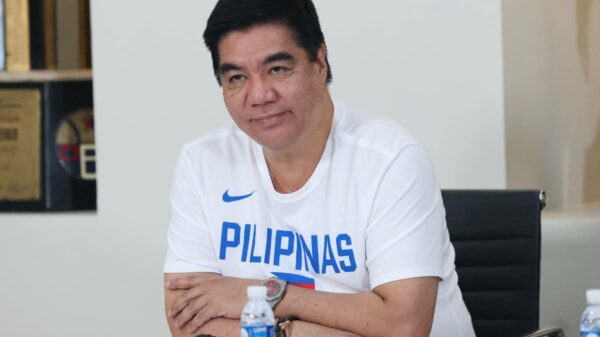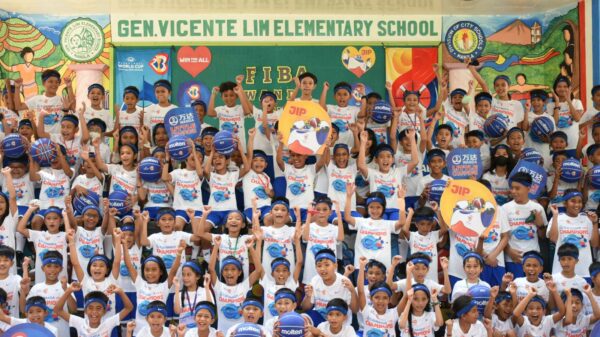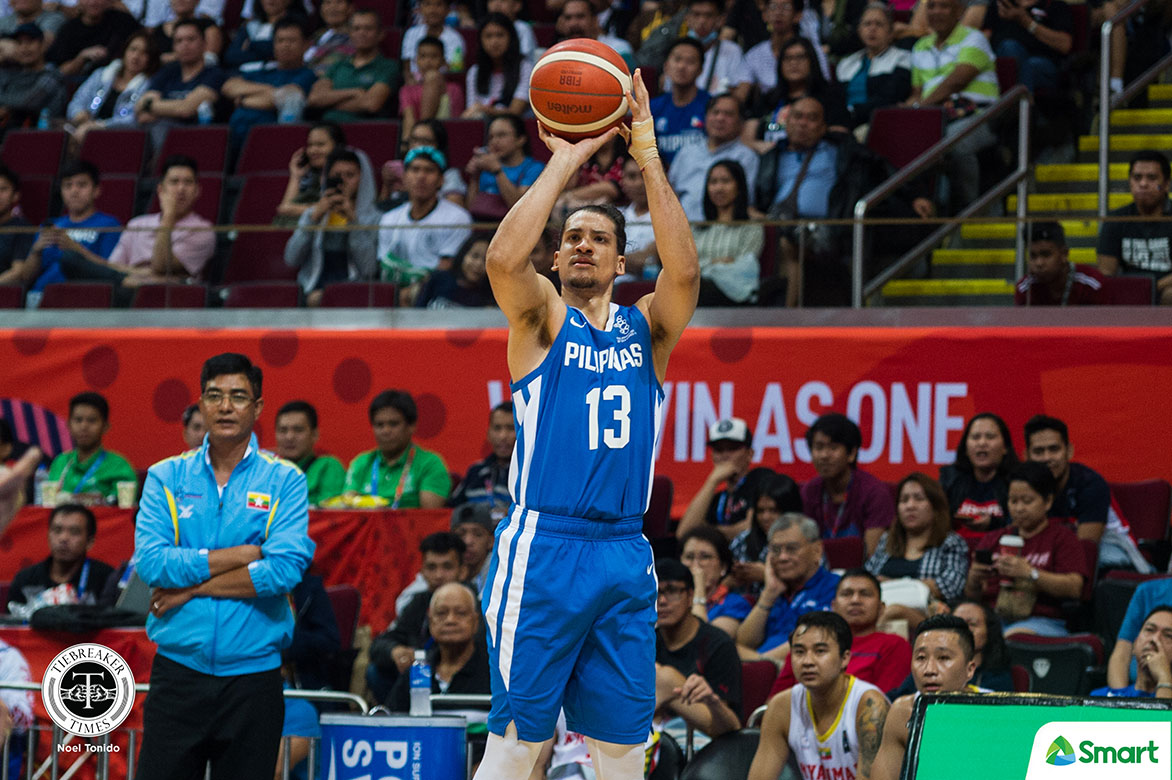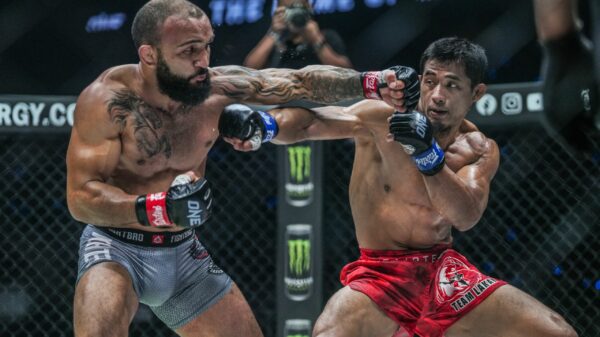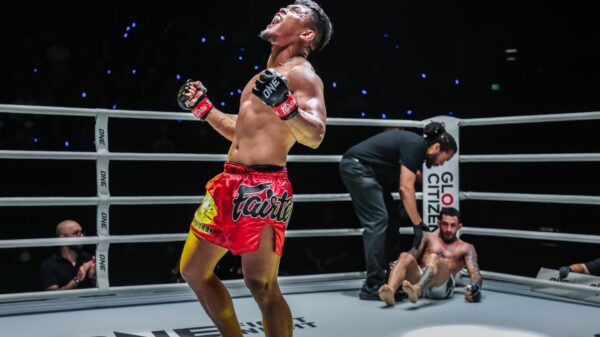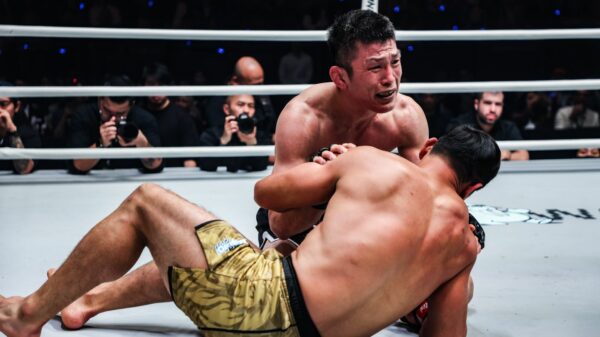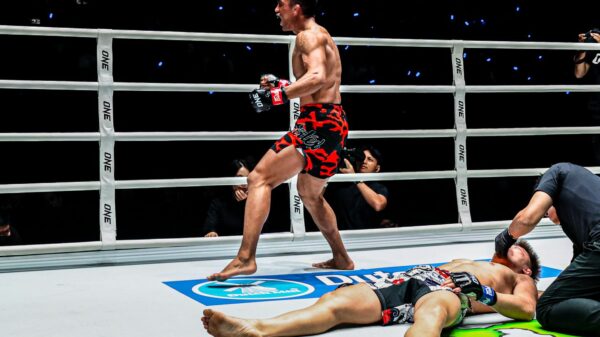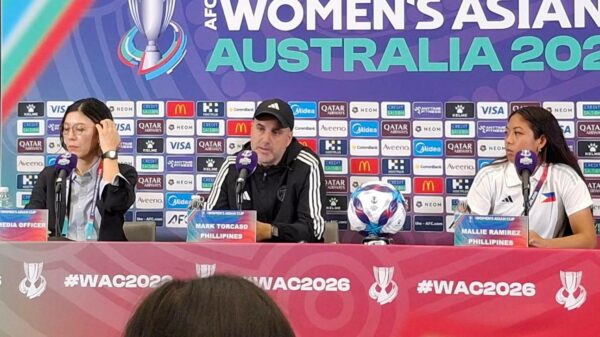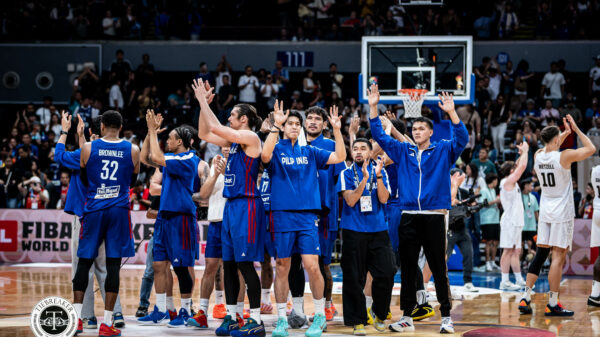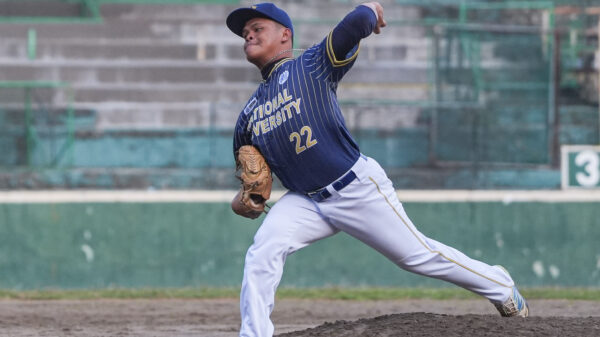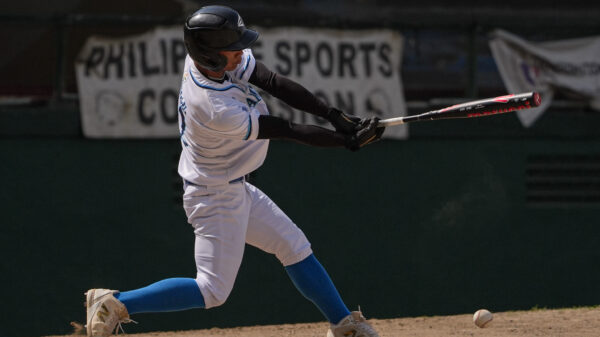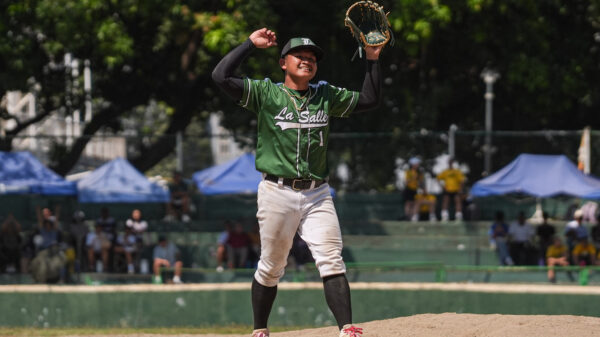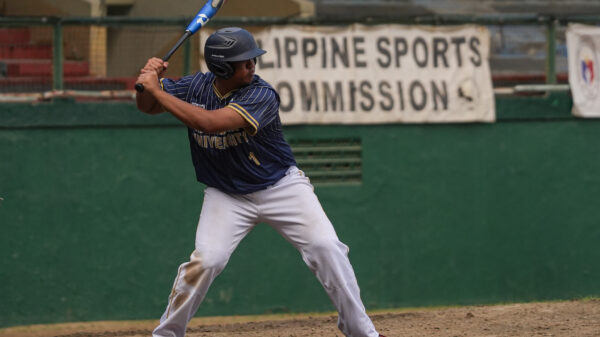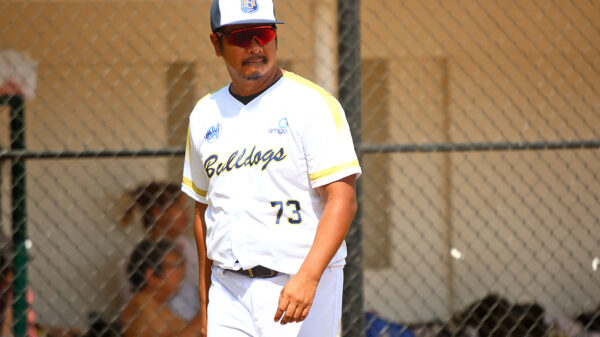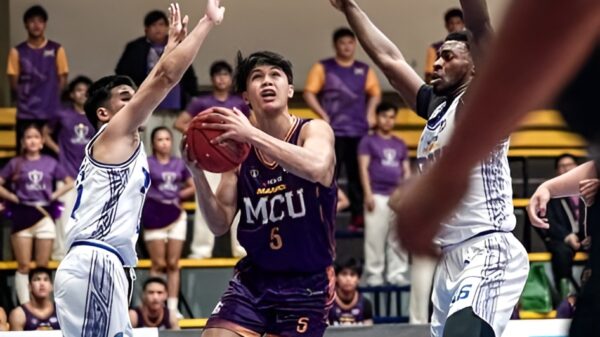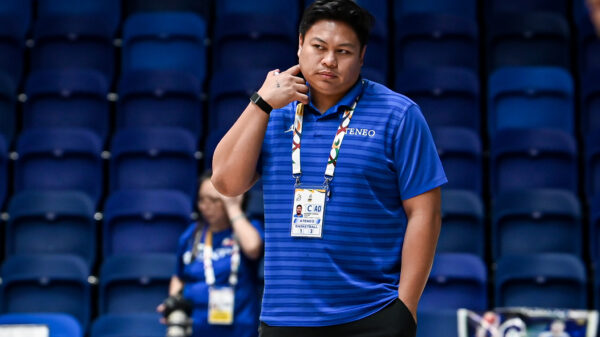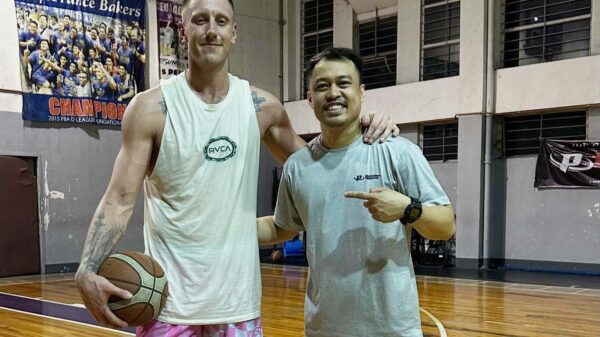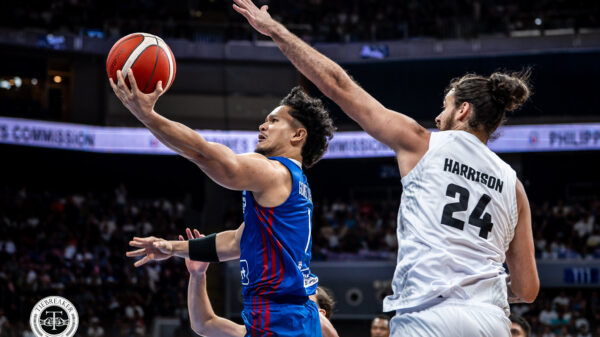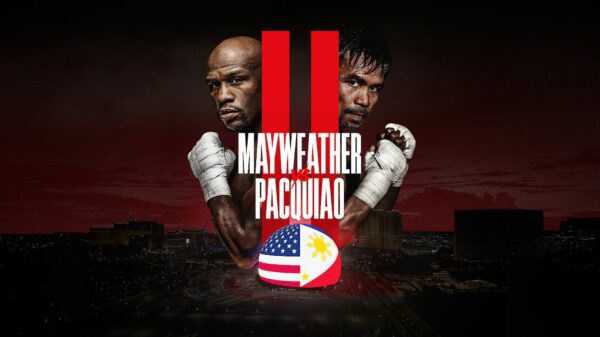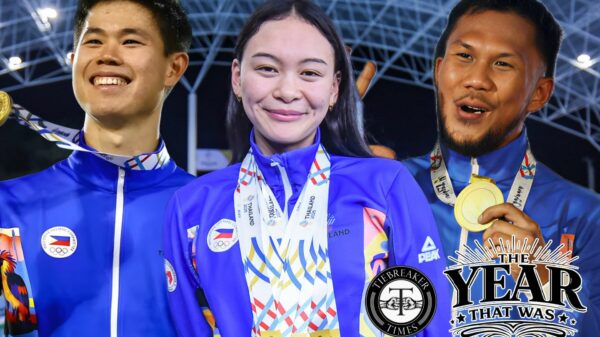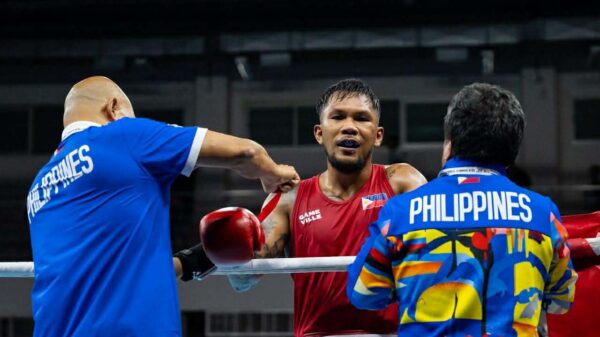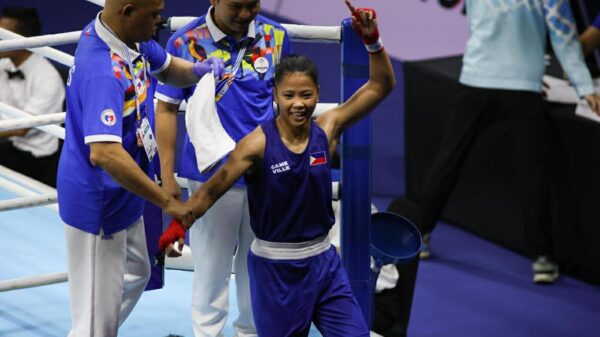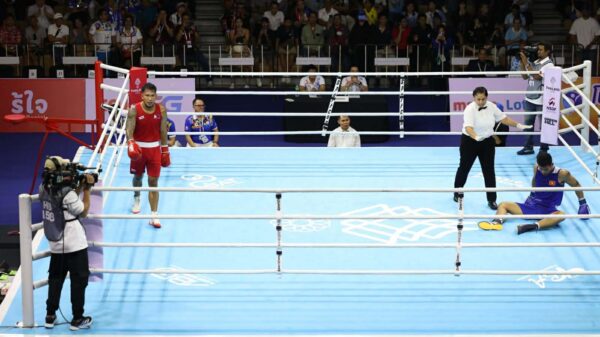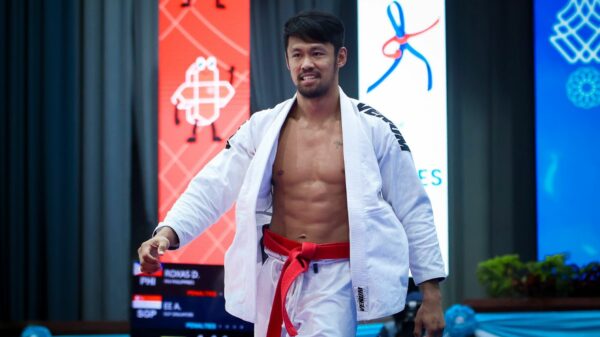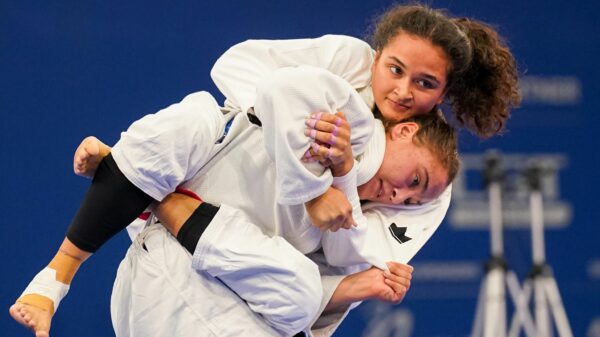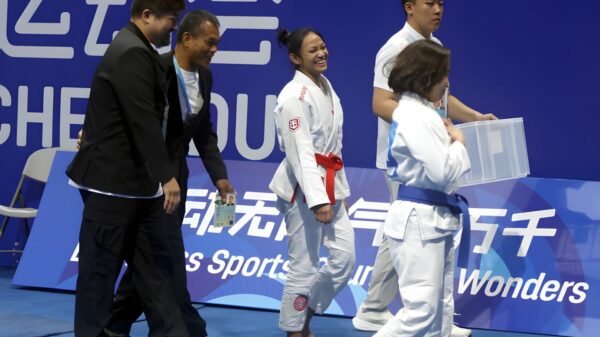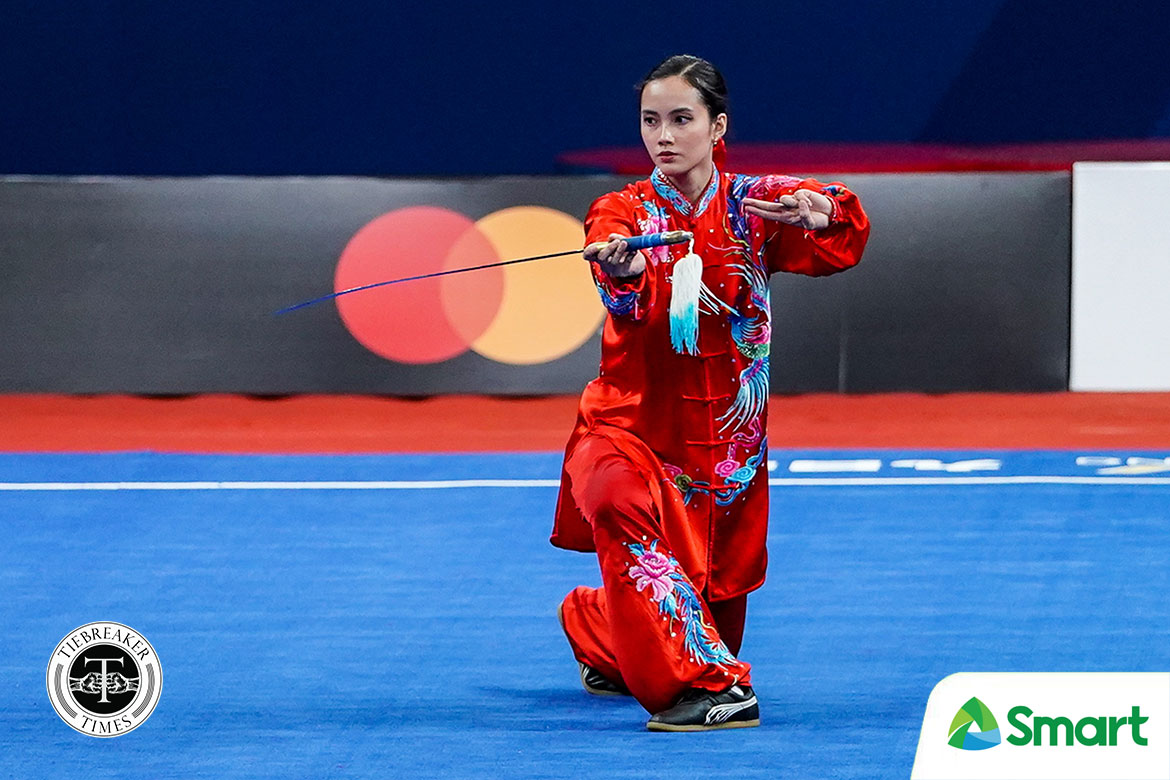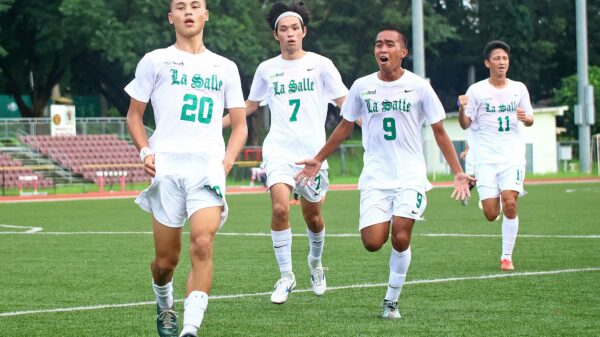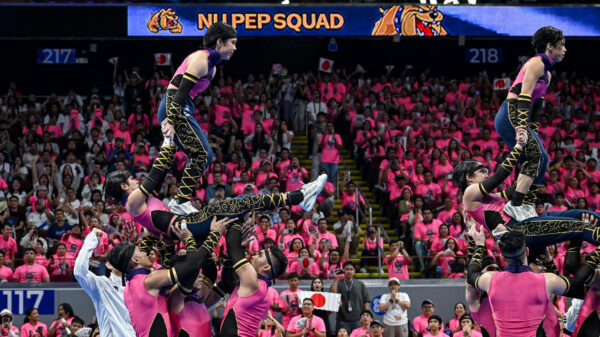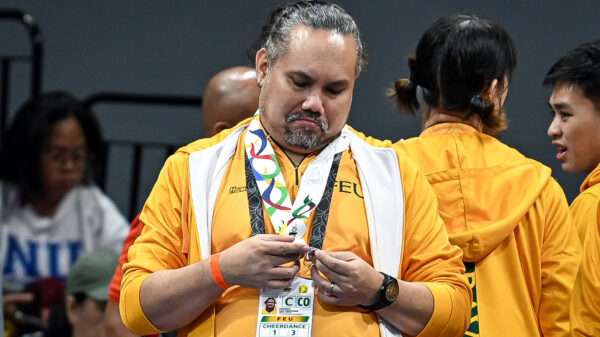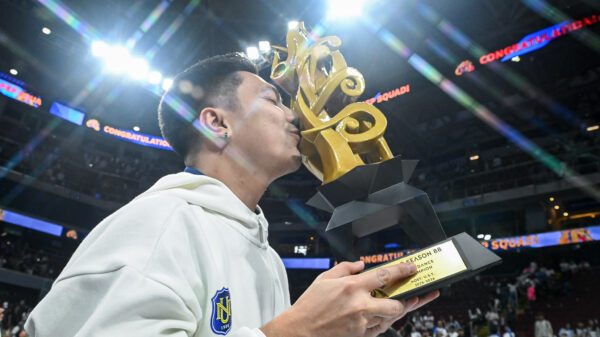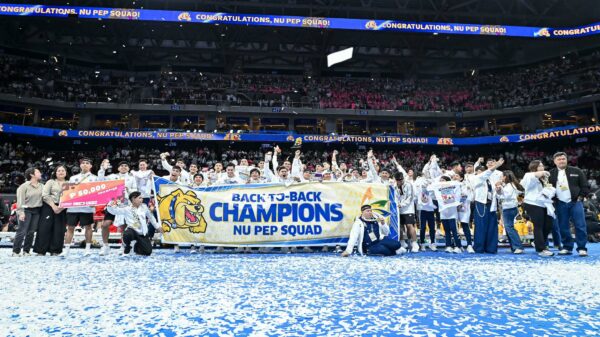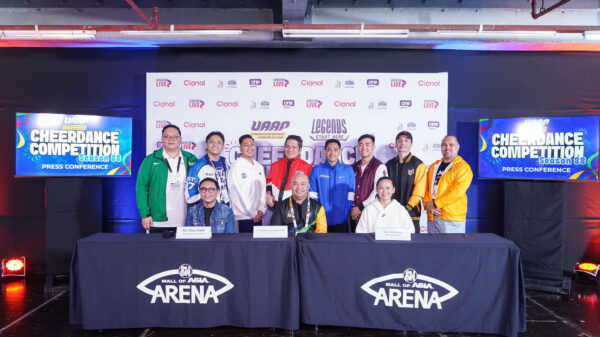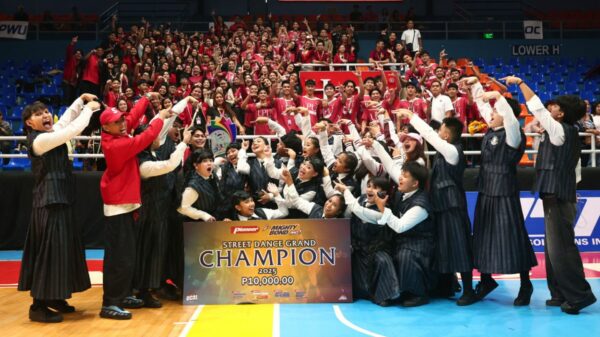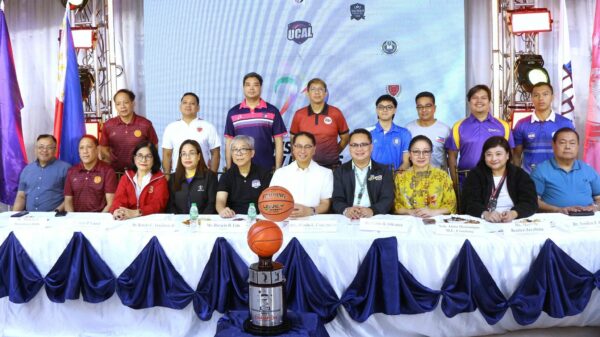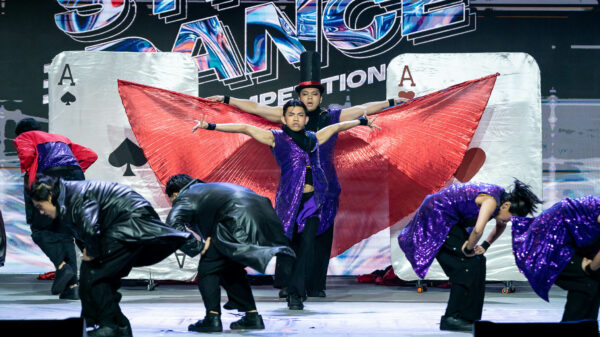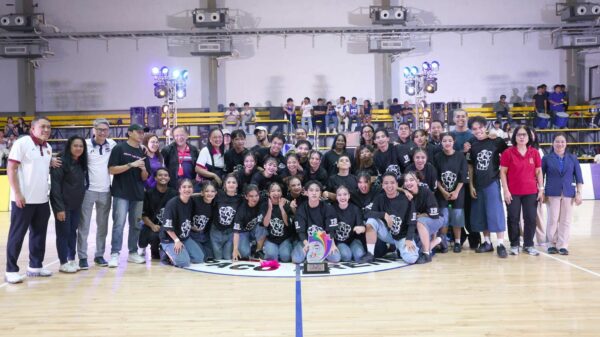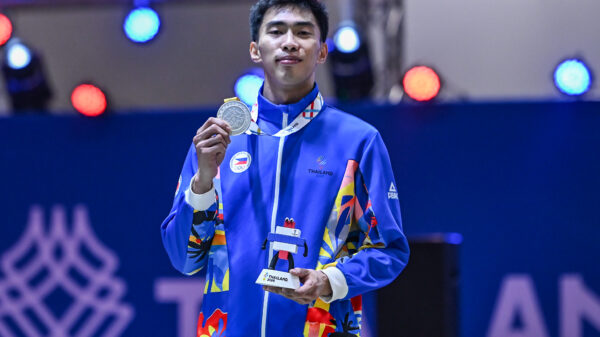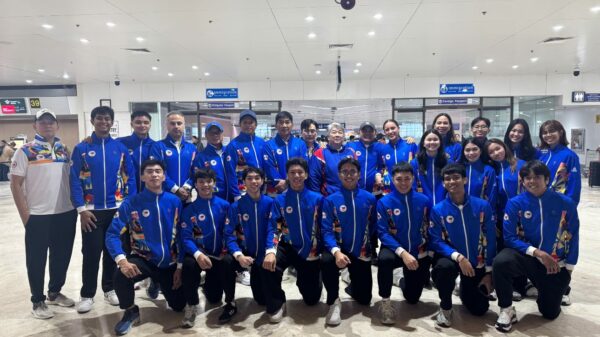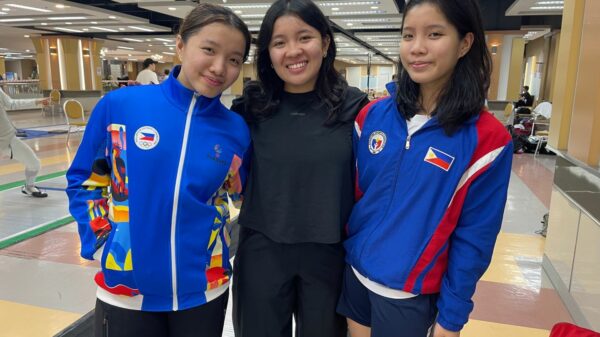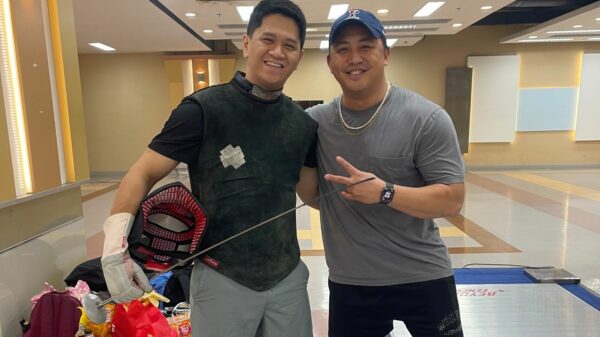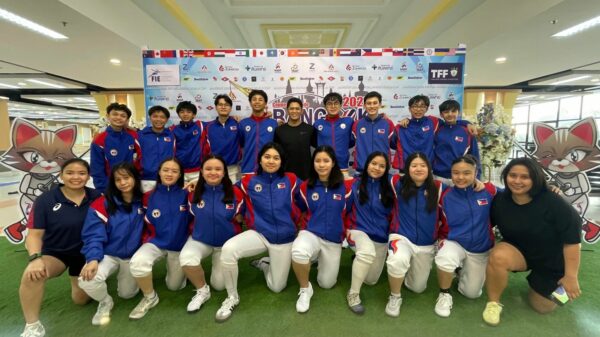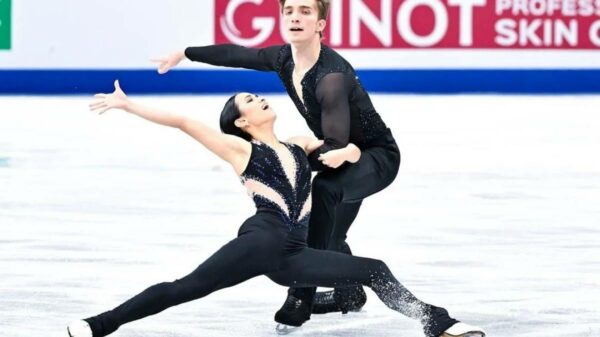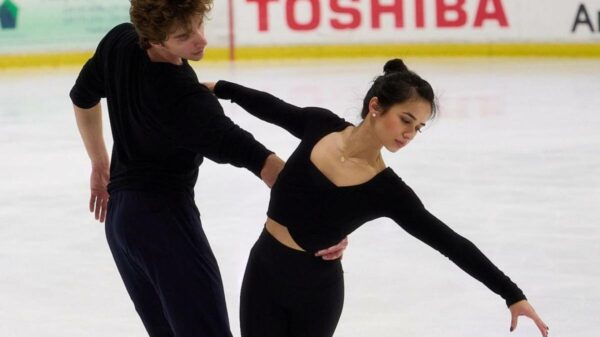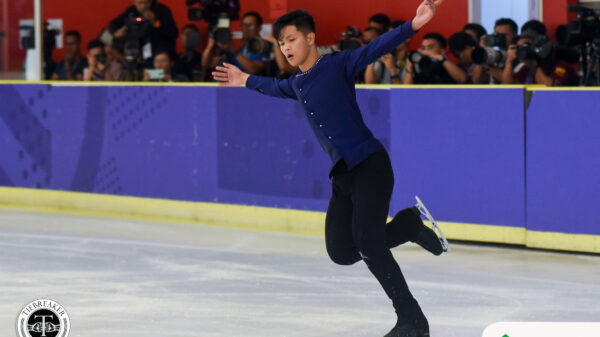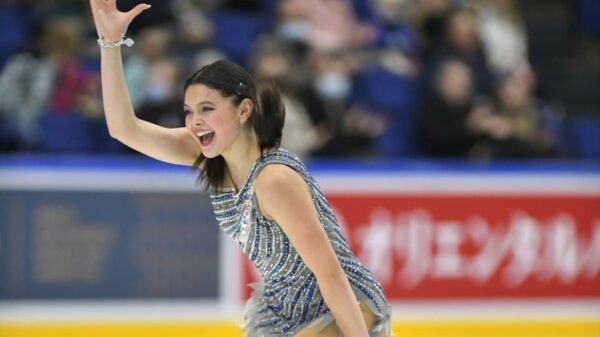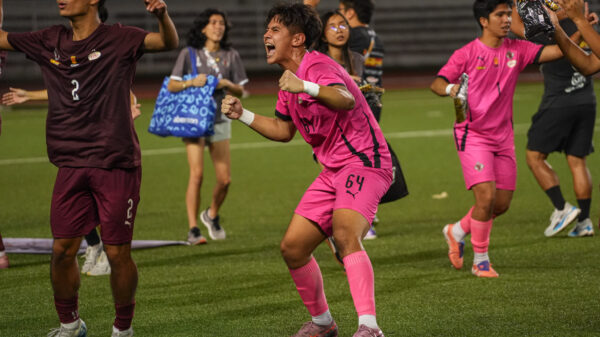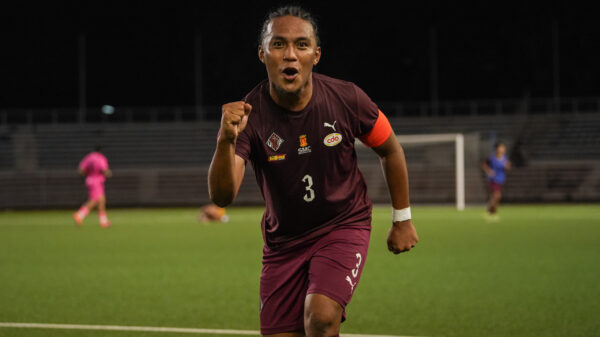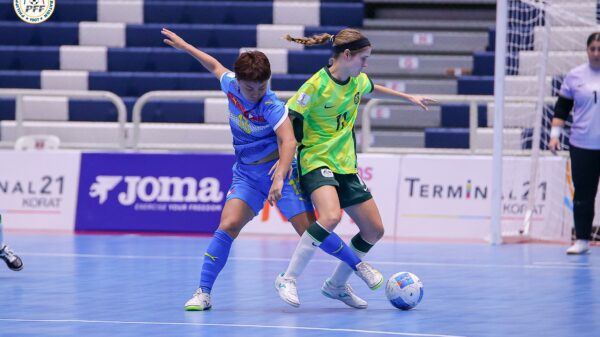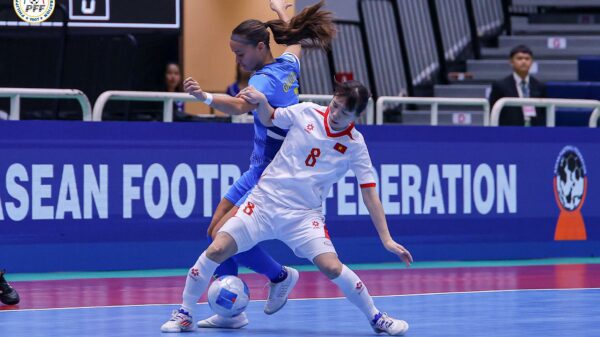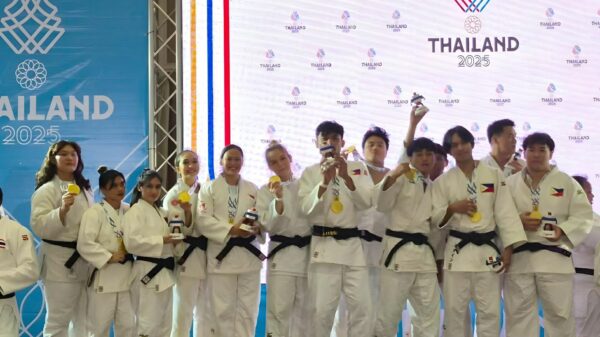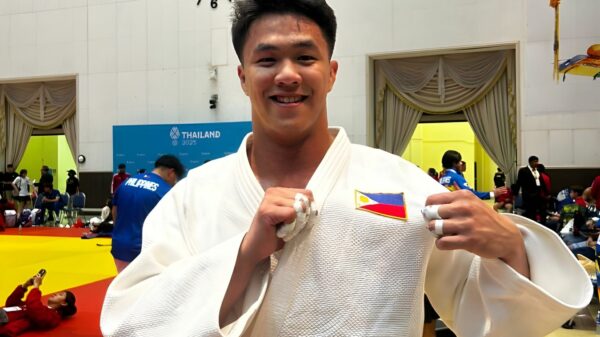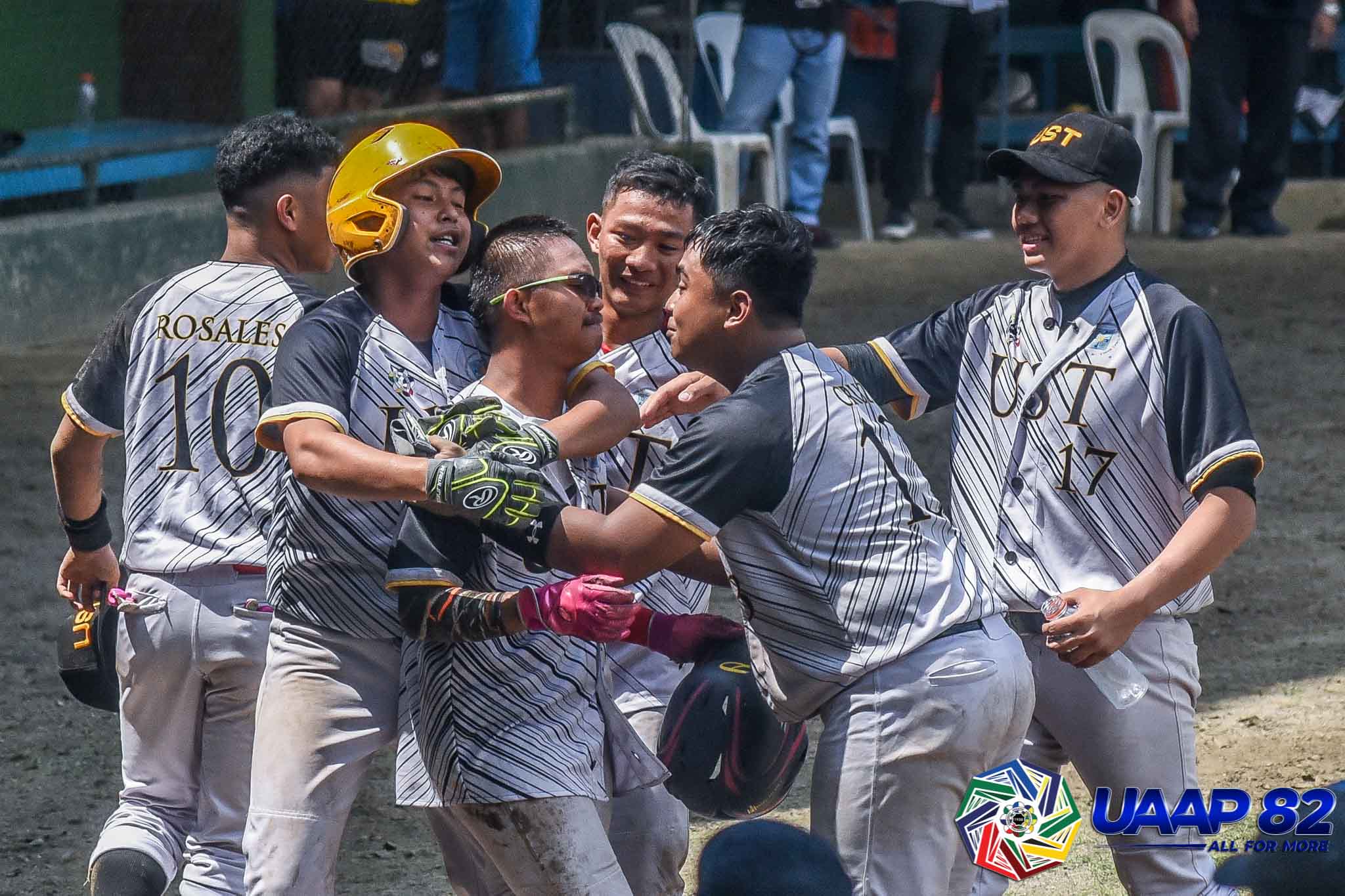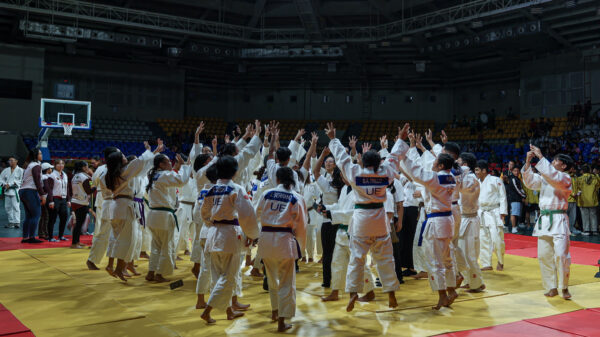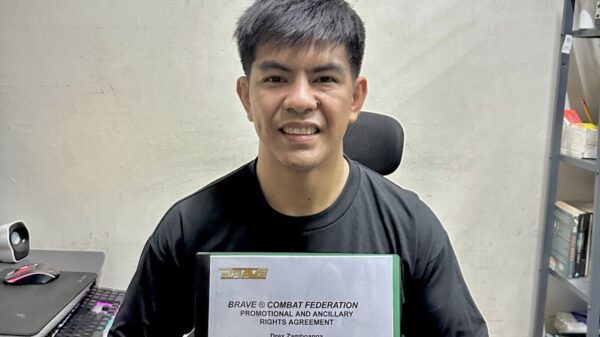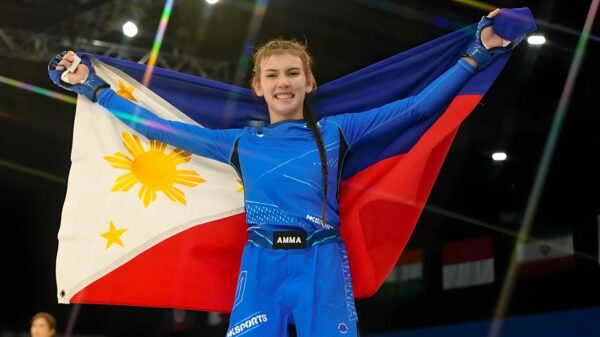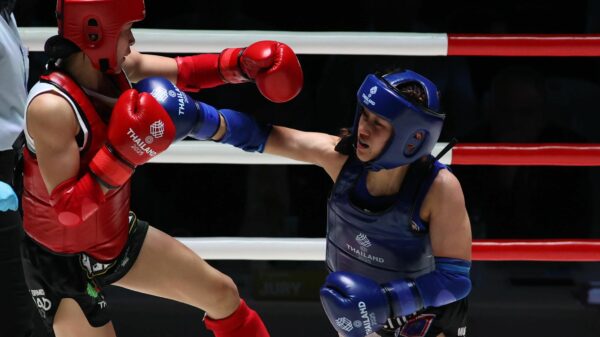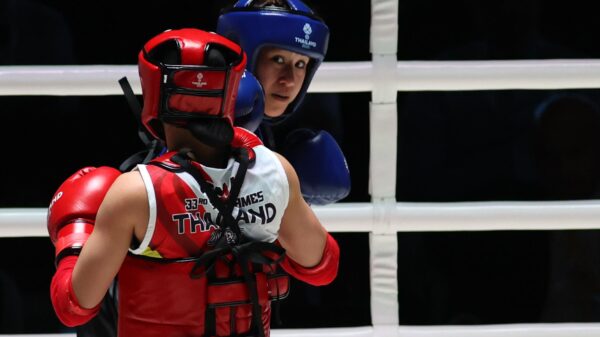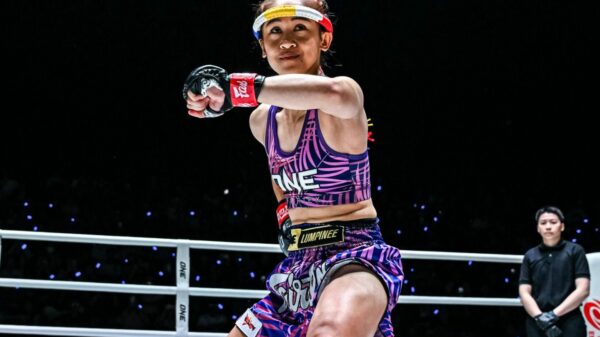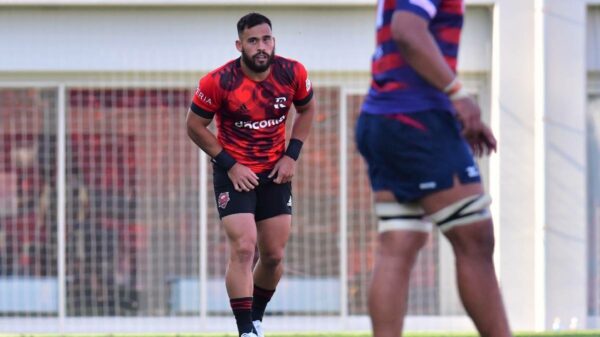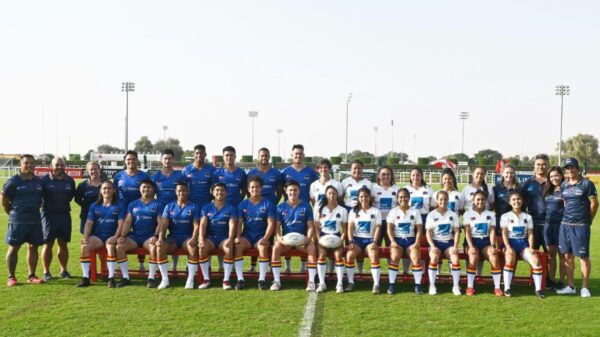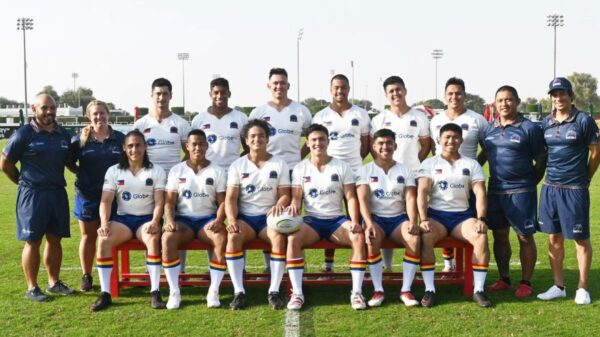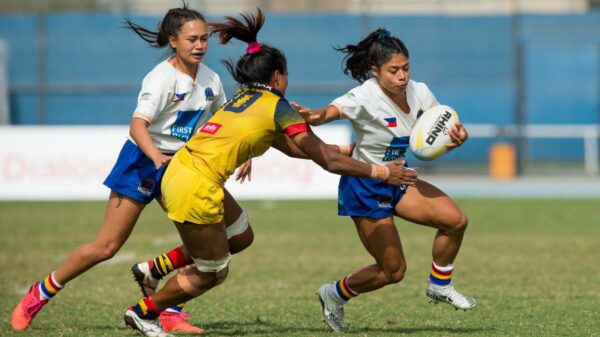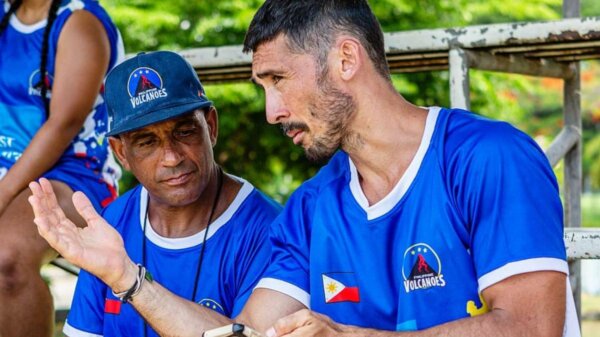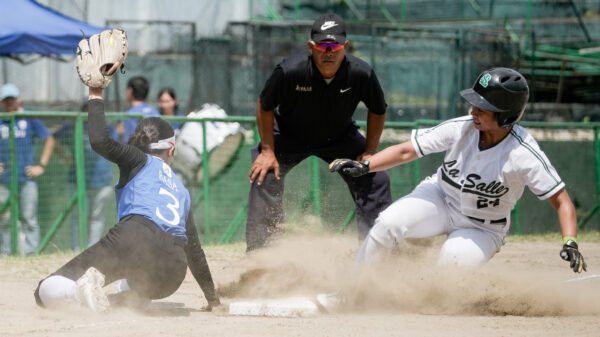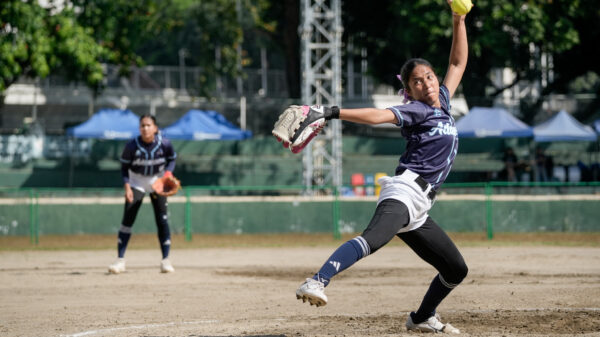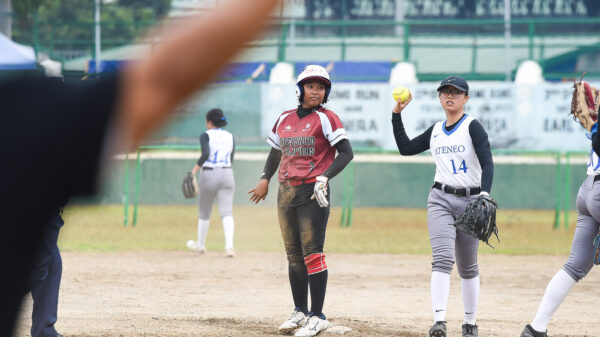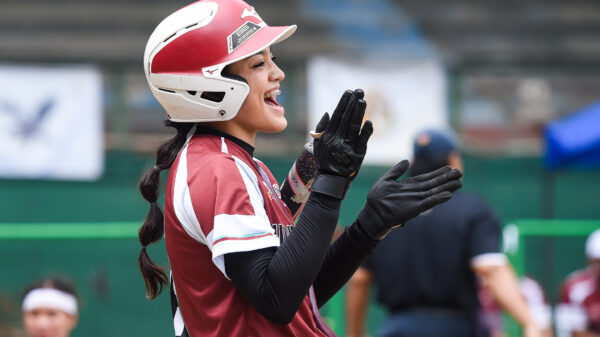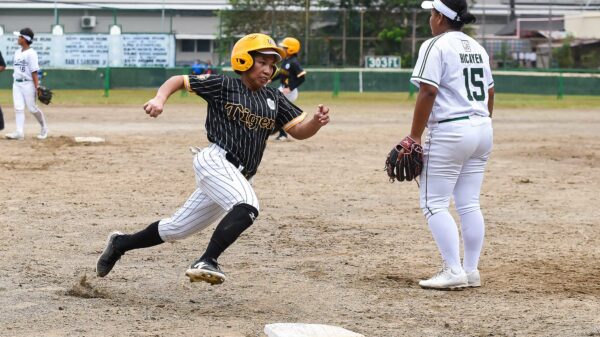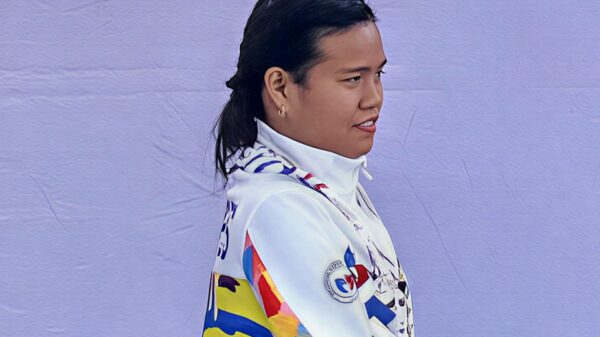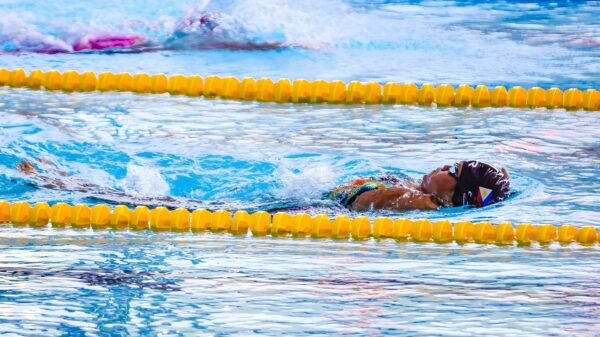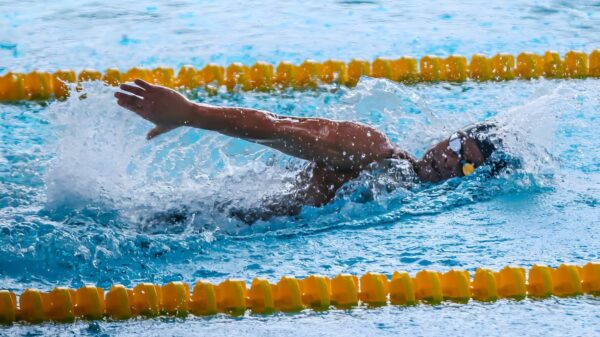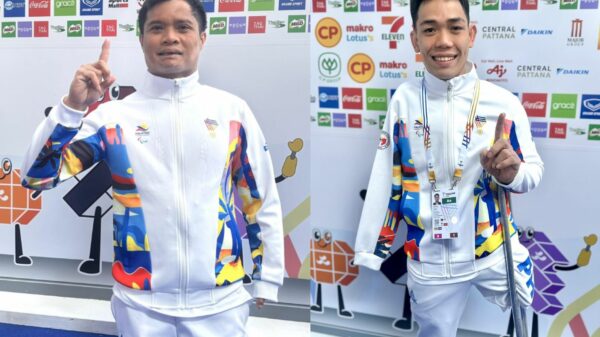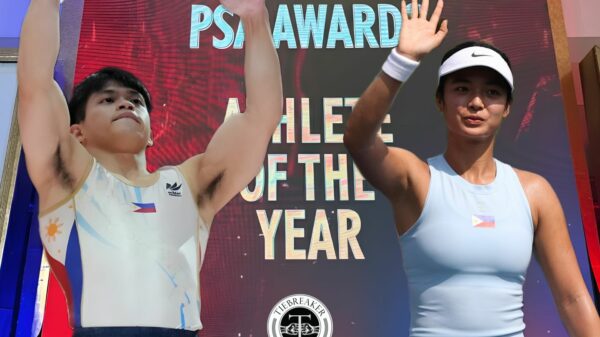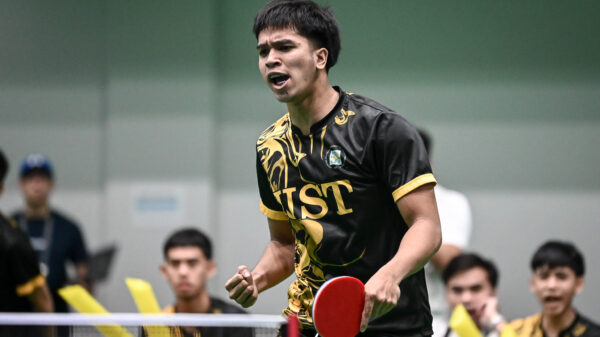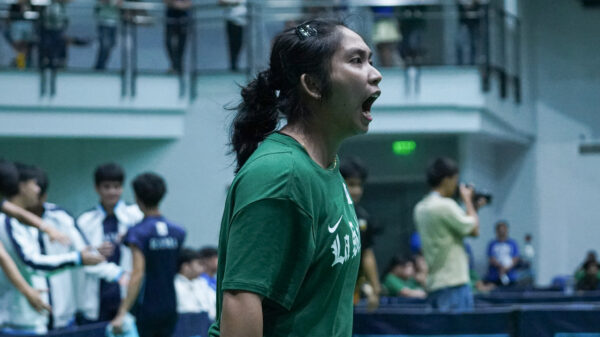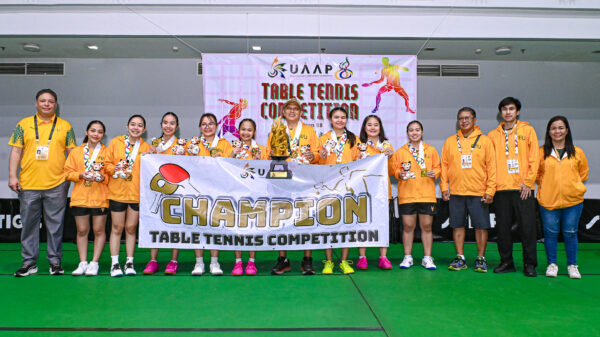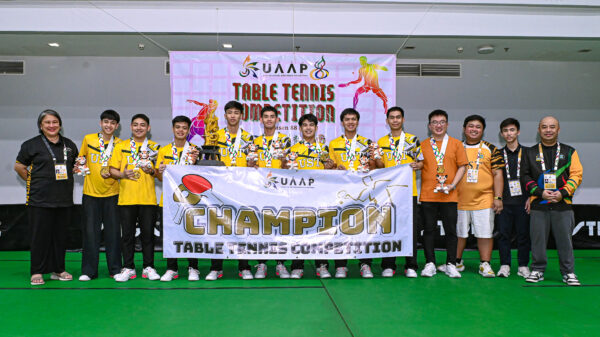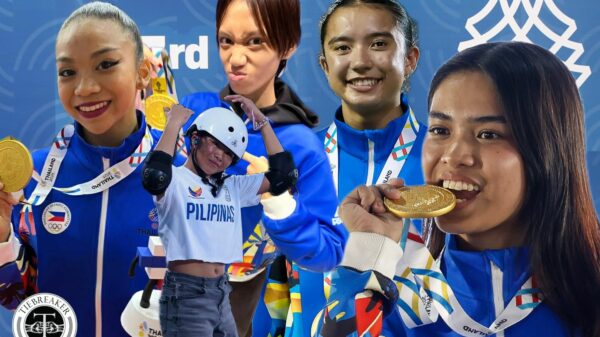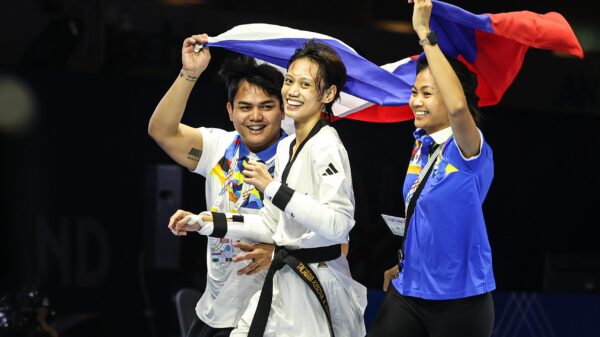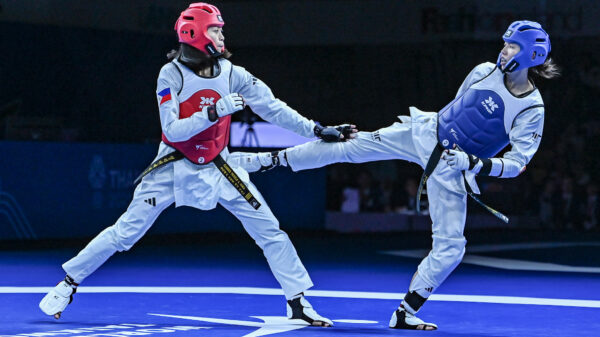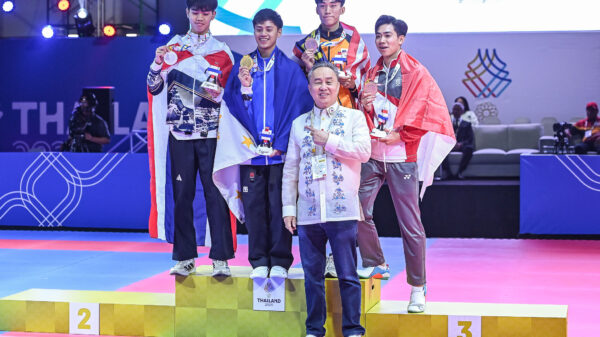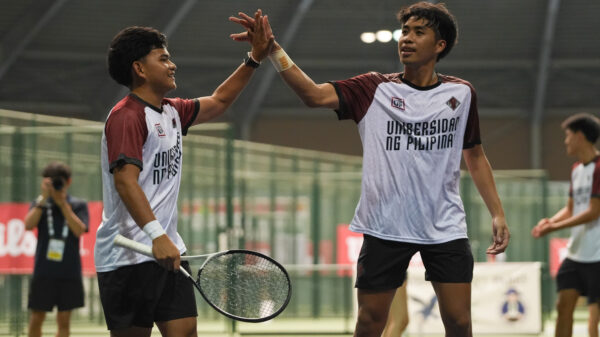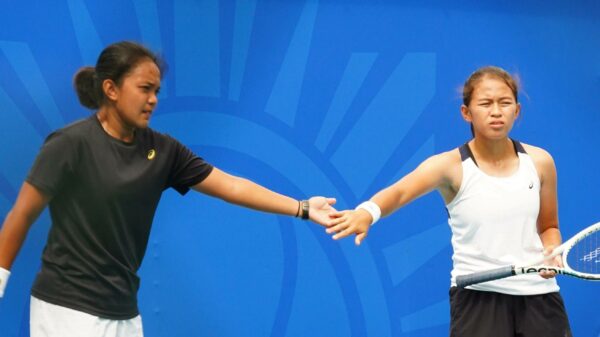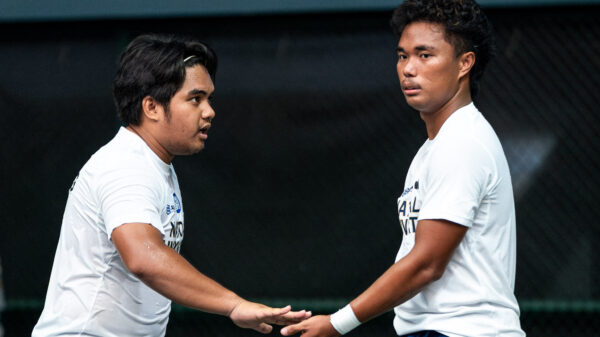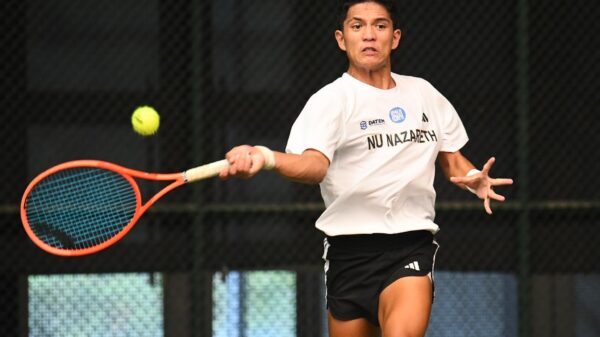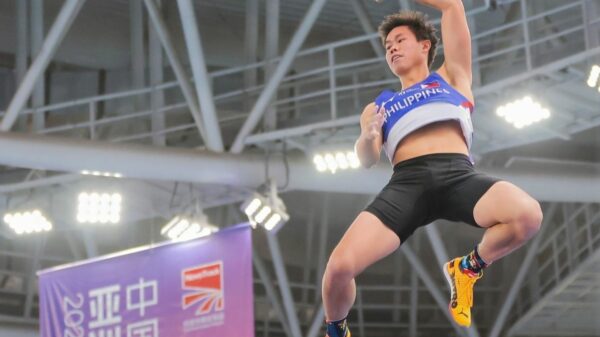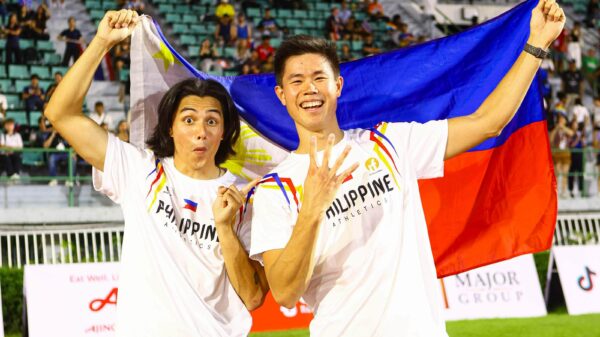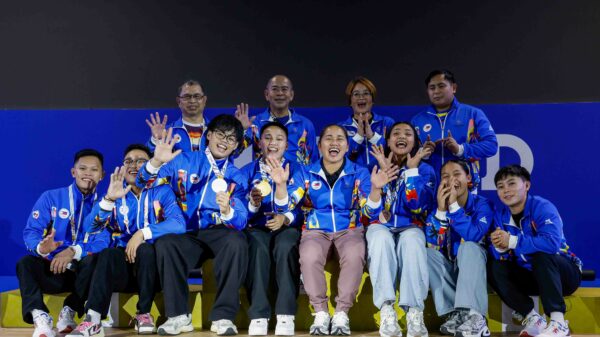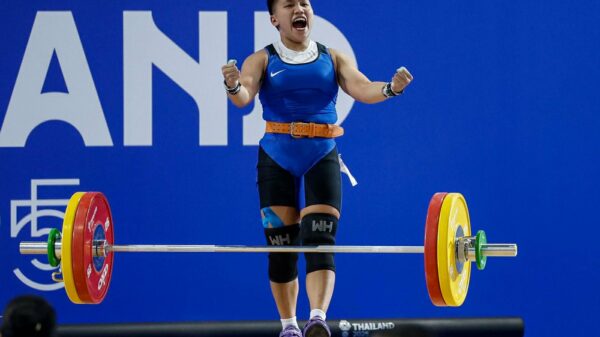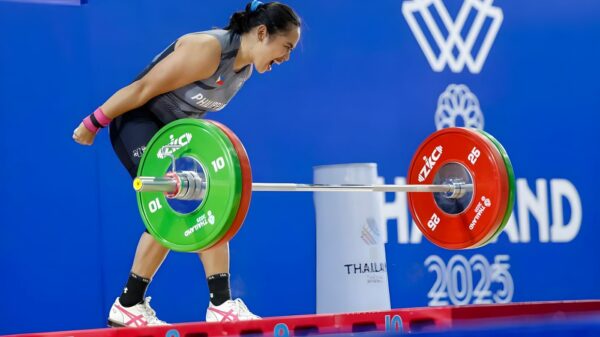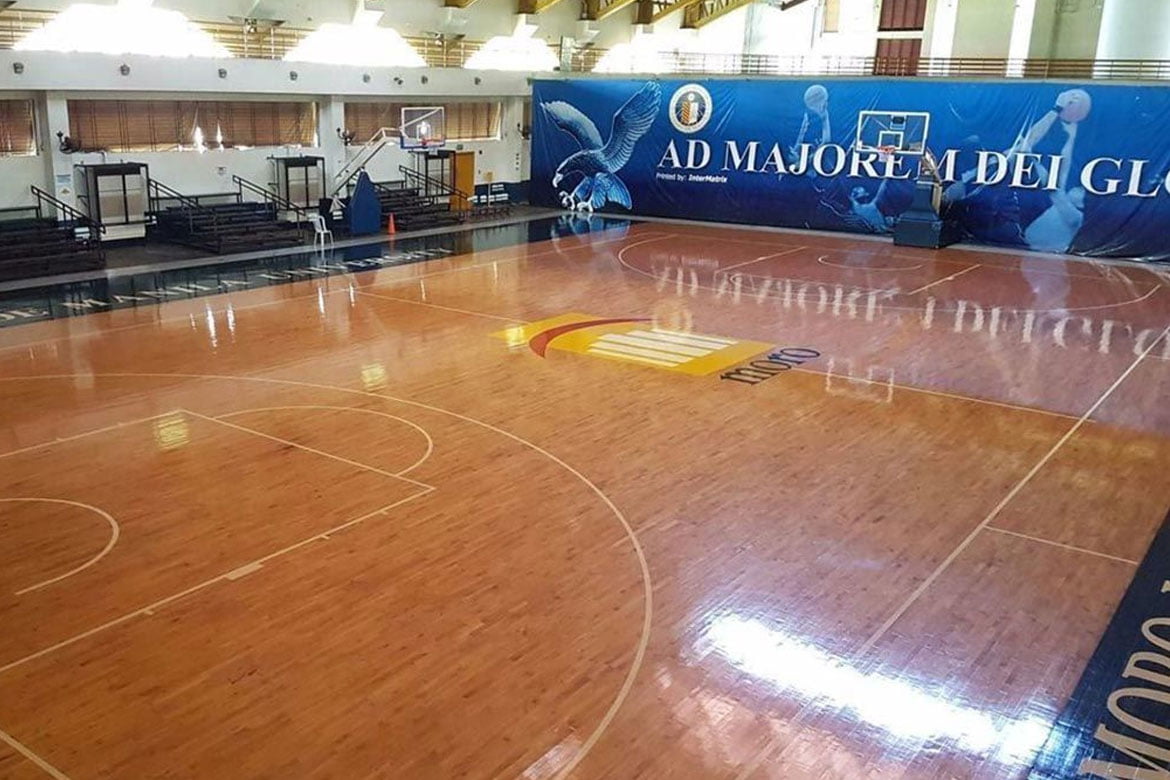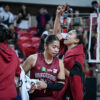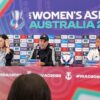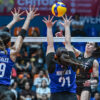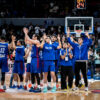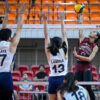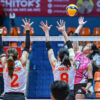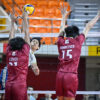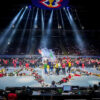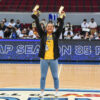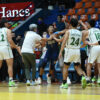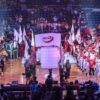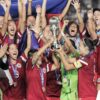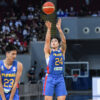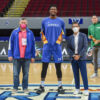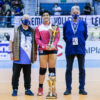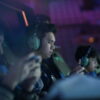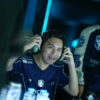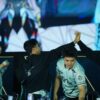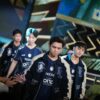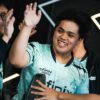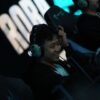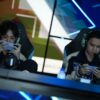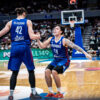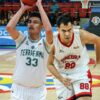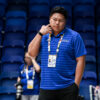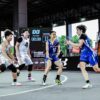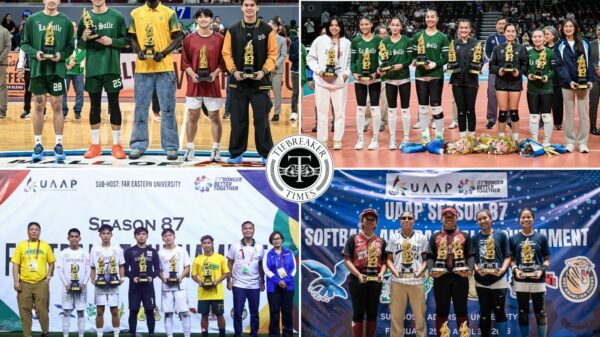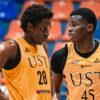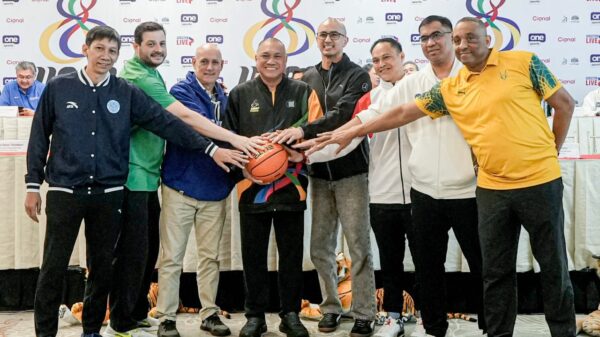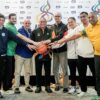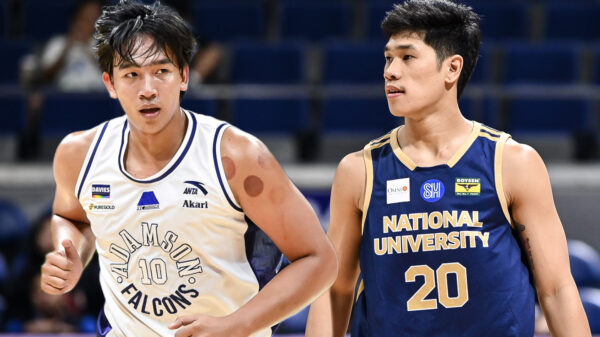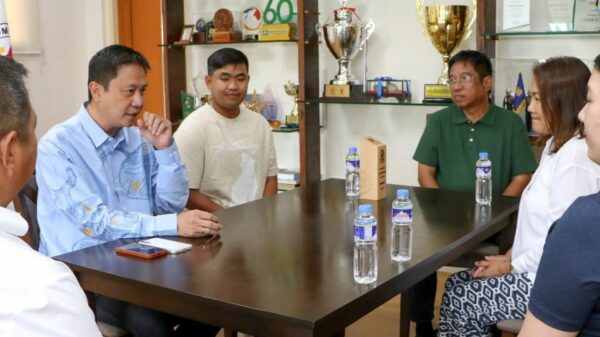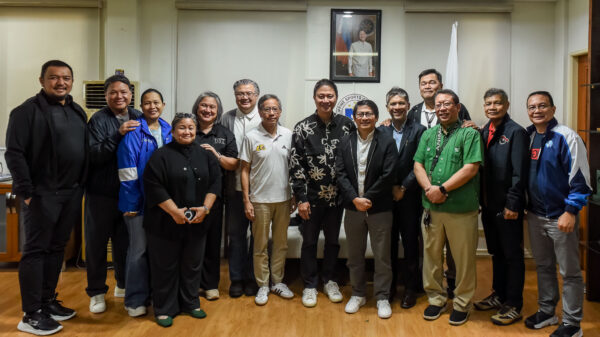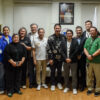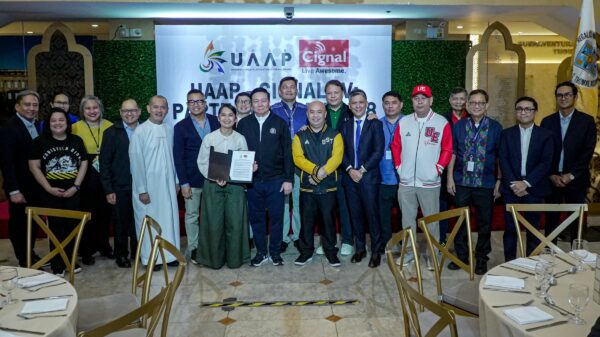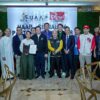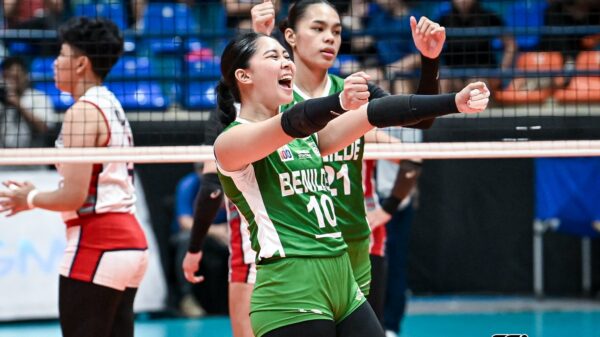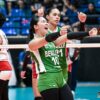After numerous meetings about how collegiate varsity squads can return to practice, the Technical Working Group — headed by the Commission on Higher Education — has deemed that bubbles will be the way to go.
The group stressed that the bubbles will only be for training, though — not for competition.
“Contact sports and activities for non-professional sports are not allowed at any time, until an effective vaccine and established standard of care is put in place for COVID-19 cases,” stressed Department of Health head of policy and technology, promotion, and communication Rodley Carza.
The TWG consists of PSC’s Marc Velasco, GAB’s Baham Mitra, CHED OIC Dr. Mary Sylvette Gunigundo, UAAP president Nongnong Calanog of La Salle, University of the Philippines’ Kiko Diaz, UAAP executive director Atty. Rebo Saguisag, Lyceum athletic director Herc Callanta, Jose Rizal University athletic director Paul Supan, Batangas State University president Dr. Tirso Ronquillo, Technological University of the Philippines president Dr. Jesus Rodrigo Torres, University of Makati executive vice president Dr. Raymundo Arcega, Private Schools Athletic Association secretary-general Laureano Santos, Lyceum-Batangas’ Dr. Fe Rabanal-Medina, and Angeles University Foundation athletic director Jeffrey Jervoso.
In the draft unveiled on Thursday afternoon, which will be presented to CHED chairman Popoy De Vera, student-athletes and coaches will be training inside the schools’ respective campuses.
If the dorm is located outside of the campus, a private vehicle must be provided by the team’s management for pick-up of those entering the campus. Moreover, each room must have a “reasonable space for each athlete”.
All in all, this is to ensure that the student-athletes are “physically separated from the general population”.
Each varsity team, not just the school, must first submit a Collegiate Training Activities’ Certificate of Compliance. It has to be endorsed by both the school’s athletic director and school president.
The COC must include the following
- That the Higher Education Institutions (HEI) intends to resume collegiate training and has student-athletes who represent or intend to represent the school in an inter-school athletic program or competition. The HEI should attach the list of the student-athletes who shall undergo collegiate training during the COVID-19 pandemic and the activities that shall be undertaken by the student-athletes.
- The complete list of a roster that must include names of student-athletes, coaches, trainers, and all staff members, including the driver, kitchen staff, doctors, who will participate or assist in the collegiate training.
- That the HEI shall adhere to the institutional, local, and national (IATF, DOH, and CHED) rules and regulations for the prevention and mitigation of COVID-19 cases.
- That the Student-athletes shall be required to submit health declaration forms for the conduct of collegiate training. Further, any student-athlete between the age of 18 and 21 shall be obliged to ask their parents or guardian for consent.
- Those below 18 shall be only allowed to participate in virtual training.
- That the HEI has coordinated with the local government unit for the inter-zonal or intra-zonal movement of the students concerned and the resumption of collegiate training in school premises.
- That any waiver will not release the institution of any liability in case of violation of the provisions of these guidelines.
Once cleared, the schools are tasked to create a body that will supervise the trainings. This would include the athletic director, a team doctor for physical and mental purposes, and a student health representative. A health and safety officer must be on-hand as well.
The school gyms must also “re-engineer or redesign of its training ground, if necessary, so that while inside the training grounds or premises, its student-athletes can practice physical distancing throughout the duration of its training.” On the other hand, a school official must “determine the occupancy capacity of the sports facilities following the physical distancing protocols and should strictly observe the same during the conduct of collegiate training.”
The draft also takes into account the importance of mental health.
“Once the trainings commence, student-athletes and personnel assisting in the training should be isolated from the general public. HEIs should provide the necessary accommodation, transportation, and provision for mental health services as may be necessary. In the case of re-entry for on-campus stay-in training, the 14-day isolation must again be observed before he/she may resume participation. HEIs should ensure that classes of student-athletes should be prioritized in scheduling their training,” it stated.
Of course, proper health protocols must be enforced at all times, including wearing of face masks and face shields for non-athletes, disinfection of venue and equipment, temperature checks, and proper sanitation.
Areas under general community quarantine (GCQ) and modified general community quarantine (MGCQ) will only be the ones allowed to host such trainings. In addition, these are just individual workouts as scrimmages are not allowed for non-professional teams.
For Carza, online trainings are still the best option for the current situation.

